7 December 2016
Gerry Adams’s statement to Dáil on killing of Chief Prison Officer Brian Stack
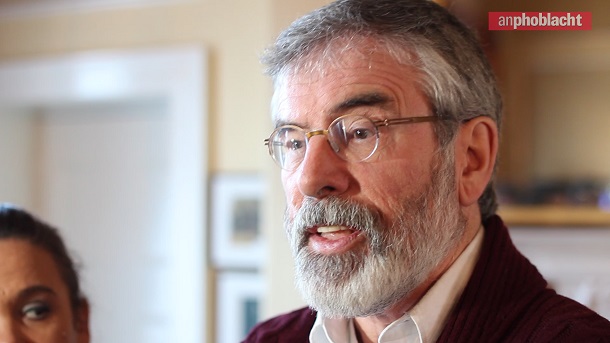
I told the Stack brothers that I could only help on the basis of confidentiality – this was the same basis on which I had been able to assist other families
GERRY ADAMS has told the Dáil that the killing of Portlaoise Chief Prison Officer Brian Stack in the 1980s was wrong and that he has always acted in the interests of trying to help the family of Brian Stack who had approached him to help them obtain some degree of closure.
Portlaoise Chief Prison Officer Brian Stack was shot in 1983. He died the following year.
It was subsequently established that IRA Volunteers had carried out the killing but it had not been authorised by the IRA leadership.
The Sinn Féin leader pointed out to the Dáil that the Stack family had previously publicly thanked him for his efforts.
He accused Fine Gael and Fianna Fáil have exploited this tragedy to score political points against Sinn Féin.
The full text of Gerry Adams’s speech to the Dáil is as follows.
***
LET ME BEGIN by saying once again that the shooting of Brian Stack was wrong.
It was a grievous loss for his family and should never have happened.
In the absence of the two governments agreeing to a process to deal with the past, I sought to try and assist the family of Brian Stack to gain a degree of acknowledgement and closure.
I did so at their request.
What has happened over the last year points up the challenges of this course of action and the urgent need for a proper legacy process to be established.
For the record, I will again set out the sequence of events and my efforts to assist the family of Brian Stack.
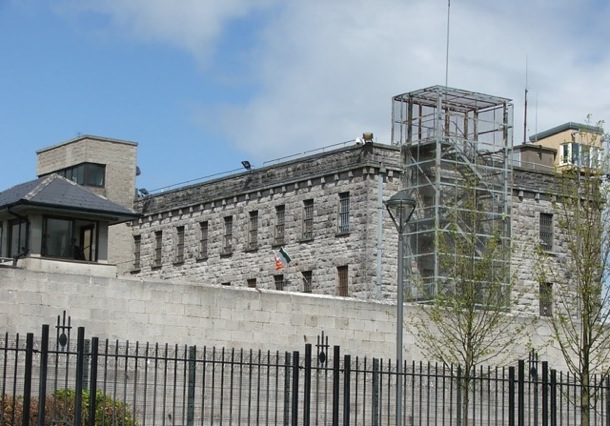
● Portlaoise Prison, where Brian Stack was Chief Prison Officer
Austin Stack approached me in 2013 seeking acknowledgment for what happened to his father.
I met Austin Stack a number of times over the course of the following months, mostly on my own.
Austin and Oliver Stack made it clear to me personally and said publicly that they were not looking for people to go to jail.
They wanted acknowledgement and closure.
There is a note of that initial meeting,
I am releasing that today.
The computer stamp shows that this note was typed into the computer on May 16th, seven days after the first meeting with the family.
Austin Stack spoke of his commitment to restorative justice processes.
I told the Stack brothers that I could only help on the basis of confidentiality. This was the same basis on which I had been able to assist other families.
Both Austin and Oliver agreed to respect the confidential nature of the process we were going to try to put in place. Without that commitment I could never have pursued the meeting they were seeking which took place later that summer.
The brothers were given a statement by a former IRA leader.
The statement was made available publicly by the family.
The statement acknowledged that the IRA was responsible for their father’s death; that it regretted it took so long to clarify this for them; that the shooting of Brian Stack was not authorised by the IRA leadership; and that the person who gave the instruction was disciplined.
The statement expressed sorrow for the pain and hurt the Stack family suffered.
Following the meeting, the family acknowledged that the process and, I quote, “has provided us with some answers that three separate Garda investigations failed to deliver. We would like to thank Deputy Adams for the role he has played in facilitating this outcome.”
Since then, the position of Austin Stack has changed.
In 2013, Austin Stack gave me the names of four people whom he believed might have information on the case.
Austin Stack told me that he had been given these names by journalistic and Garda sources.
Austin Stack has denied giving me names.
Why on earth would I say that I received the names from him if I didn’t?
In February of this year, Austin Stack also claimed that he gave names to the Fianna Fáil leader Mícheál Martin.
If Austin Stack was prepared to give names to Mr Martin, why would he not have given them to me?
I was, after all, the person he was asking to arrange a meeting.
At Austin Stack’s request, I contacted those I could from the names he gave me.
They denied having any information about the killing of Brian Stack.
I told Austin Stack this.
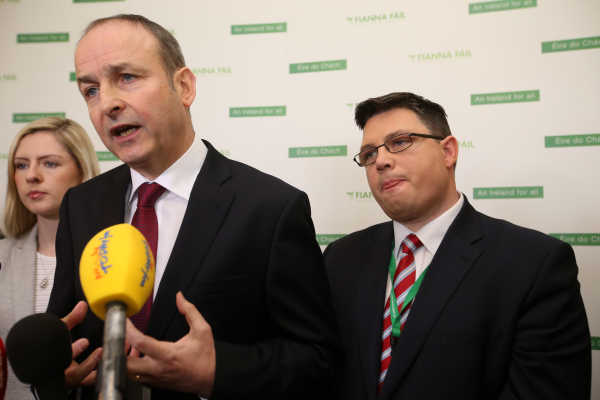
● Fianna Fáil leader Mícheál Martin – part of his election strategy against Sinn Féin
During the election campaign earlier this year, the Fianna Fáil leader and others repeated a lot of what was said in 2013.
It was part of his election strategy against Sinn Féin.
However, in addition, allegations were made that I was withholding information from the Garda.
It was in this context, and to remove any uncertainty or ambiguity, I emailed the Garda Commissioner the names that Austin Stack had given me and which he said had come from Garda and journalistic sources.
I have never at any time described those named as suspects.
I made it clear to the Garda Commissioner that I have no information on the death of Brian Stack.
The email was only sent after I had spoken to three of the four.
There is a live Garda investigation.
I am prepared to co-operate with this.
The position of Mícheál Martin, who was a minister in successive Fianna Fáil governments during the Peace Process, and of the Taoiseach on this issue is hypocritical, inconsistent and in fact disappointing.
I have never sought publicity on this issue.
Any public comments I have made have been in response to others . . .
Firstly, when Austin Stack publicly asked to meet me, and during the process we established in 2013;
Secondly, when Fine Gael and Fianna Fáil sought to exploit this issue as part of their election campaign of 2016.
And today I make this statement in the Dáil following an email that I wrote to the Garda Commissioner being put inappropriately, in my opinion, into the public realm and then raised here in the Dáil twice by the Fianna Fáil leader.
I say inappropriately because there is a live investigation into the murder of Brian Stack and we in this chamber should be mindful not to say anything which might prejudice this or any future court proceedings.
The Fianna Fáil leader and the Taoiseach seem to be unconcerned about this.
For my part I will co-operate with An Garda Síochána.
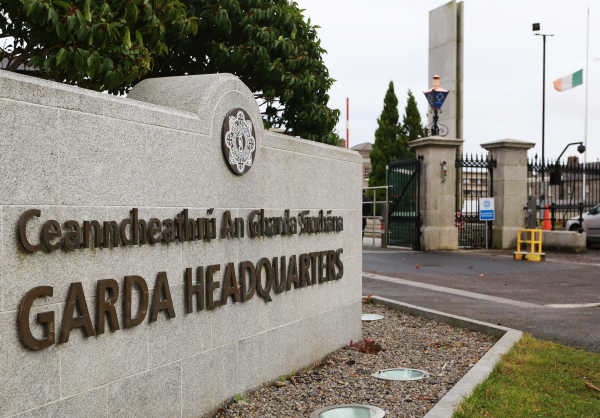
Mícheál Martin says I named four people who I understand to be suspects in the murder of Mr Stack.
Teachta Martin has misled the Dáil.
I never made such a statement.
I have never described those named as suspects.
He says that I said I took a note of the meeting between Austin and Oliver Stack and a former IRA leader.
I never said this.
I took no note of that meeting.
He says I took Austin and Oliver Stack to that meeting in a blacked-out van.
The Taoiseach even went so far on Tuesday to say I drove the van.
Not true. I travelled with the Stack brothers in my car to a prearranged place on the Border and then we were all taken in a van to the meeting in the North.
The Fianna Fáil leader and the Taoiseach should correct the Dáil record on these.
Since Fr Alex Reid and Fr Des Wilson, myself and [SDLP former leader] John Hume began our work to develop a peace process, successive Fianna Fáil and Fine Gael governments, encouraged and facilitated meetings between myself and Martin McGuinness and the IRA leadership.
Is the Taoiseach and Fianna Fáil leader demanding that we should have named those we met?
Do you think this would have helped the Peace Process?
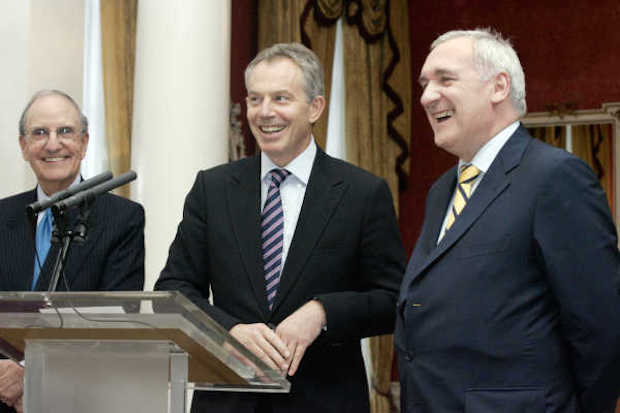
● US Senator George Mitchell, Tony Blair and Fianna Fáil leader and Taoiseach Bertie Ahern – accepted that meetings with the IRA were crucial to the Peace Process
I recall one specific occasion when a meeting in St Luke’s [Bertie Ahern’s Drumcondra office] with the then Taoiseach Bertie Ahern and Tony Blair’s Chief of Staff, Jonathan Powell, was suspended to allow Martin McGuinness and I to meet the IRA.
On other occasions, initiatives involving the Irish and British governments, the IRA, the Ulster Unionist Party and Sinn Féin were constructed to advance the process.
Meetings were adjourned to facilitate this.
These conversations helped to secure historic cessations.
Should those involved be named?
None of these would have been possible without talking to the IRA.
Mícheál Martin knows this.
Our efforts led in July 2005 to the IRA announcing an end to the armed campaign and to engaging with the International Independent Commission on Decommissioning to put its arms beyond use – progress that could only have been secured on the basis of direct contact and confidentially.
Is Mícheál Martin demanding that Martin McGuinness and I should name those we were meeting in the IRA leadership and who decided to put their arms beyond use?
Is he demanding that the Decommissioning Body name those IRA members it met?
Are they demanding that Cyril Ramaphosa and Martii Ahtisaari name those in the IRA they engaged with to facilitate the arms beyond use process?
Should we now name all of those in the IRA who supported the Peace Process and took difficult but courageous decisions?
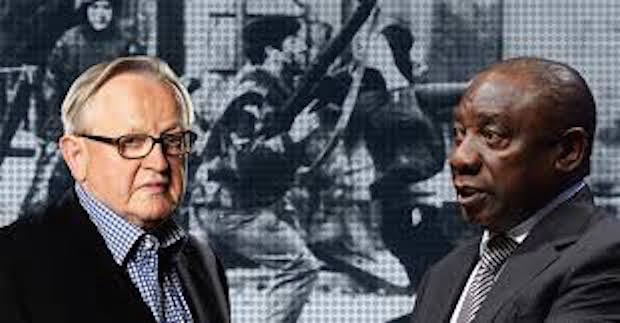
● Cyril Ramaphosa and Martii Ahtisaari – met the IRA
I and others also assisted the Smithwick Commission.
One of the most difficult legacy issues that we have had to deal with is that of ‘The Disappeared’.
The governments established the Independent Commission for the Location of Victims Remains at my request and with Fr Reid’s support.
As a result of our efforts, 12 of the 16 victims have been recovered and work continues on seeking information on the remain four.
I haven’t given up on this.
Martin McGuinness and I continue to meet regularly with the Commission.
The Commission also meets with former IRA people.
Should they be named?
Mícheál Martin knows all of this. He was a senior member of the government which established the Commission.
Progress was only possible on the basis of confidentially and trust. That is why no IRA people were named during any of these initiatives and why they should not be named today.
It is an essential part of any conflict resolution process.
Sinn Féin has worked consistently to resolve the issues of the past.
As part of our commitment to this I have met many families like that of Brian Stack who have lost loved ones.
If the Taoiseach and Mícheál Martin are interested in healing the legacy of the past for all families – including the Stacks, the Finucanes, the families of the Dublin and Monaghan bombs and hundreds more – then they could begin by putting in place an international-based independent truth recovery process.
My generation of republican activists who lived through and survived the war have a responsibility to try and bring the families of victims of the war – irrespective of who was responsible – to a better place.
That is what I have tried to do with my engagement in 2013 with the Stack family.
Follow us on Facebook
An Phoblacht on Twitter
Uncomfortable Conversations

An initiative for dialogue
for reconciliation
— — — — — — —
Contributions from key figures in the churches, academia and wider civic society as well as senior republican figures





